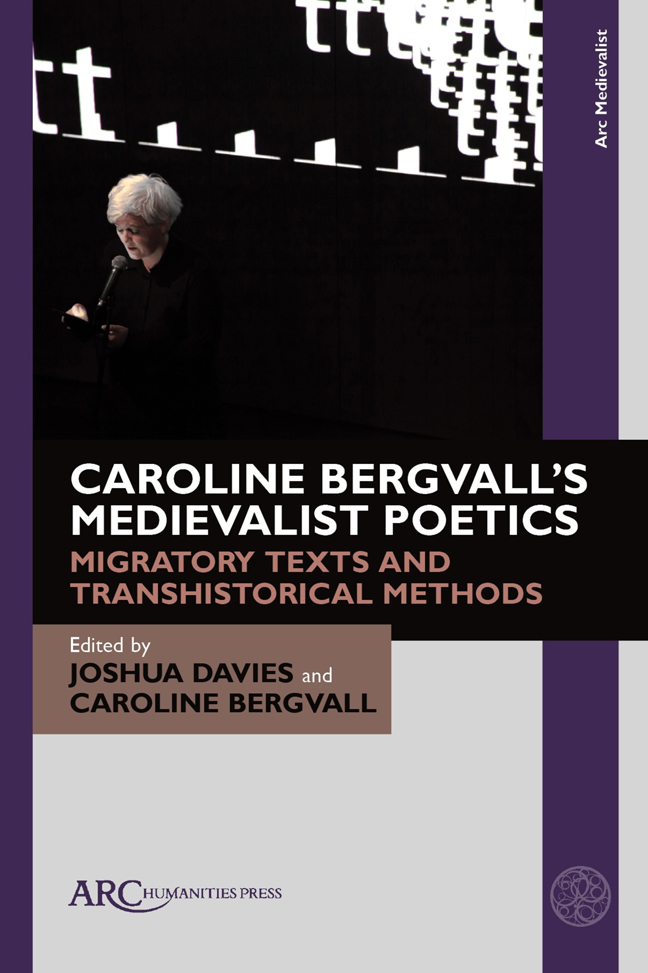Chapter 1 - A Veritable Dollmine
Published online by Cambridge University Press: 20 February 2024
Summary
IN THE ABSENCE of a more developed review culture, readers of this recent book by Caroline Bergvall might wonder about the status of its intimacy and public address. This is work which flaunts its poetic affiliations with some panache. The opening epi graph from Duchamp—“Arrhe est … art ce que merdre est … merde”—suggests the workings of a cosmopolitan wit, suspicious of the superiority of “art” over other games, and happy with a whiff of eau de toilette from the Dada urinal. The text parenthesizes a “Homage to Louise Bourgeois,” and gives succour to impressions that this is a post-Dada, post- Surrealist poetics, one that pooh-poohs the boy’s own paper heroics otherwise familiar from various admirers of Bataille and Deleuze. If the epi graph also arouses expectations that the book will play with the poetic, idiomatic, and vulgar potential of dropped con-sonants and arty franglais, then readers are in for a treat. A certain Eurolinguaphilia is needed to appreciate the verbal play: “slip on a slap on a chatte Cat upfront to sleep with broad Loot Outbroads LaBonkings.” Pleasures from what one might find on the tip of one’s multilingual tongue are much to the fore.
The italicized statement on the book’s second page indicates the exploratory prem-ise of the book: “Anybod’s body’s a Dollmine.” “Bod” evokes the abbreviations of con-temporary sexuality, “nice bod” etc. Tensions between bod, body and “corps” prompt the questions of fantasy and desire suggested by “Dollmine.” Asking whose “any” reveals more political dimensions in our collective participation in imaginary dolls:
To take advantage of the interior mechanism run through the thoughts retained of little girls as a panorama deep in the belly revealed by multicoloured electric illumination
If this locates illumination as a problem, the poems themselves use puns to illuminate lewd qualities in familiar idioms, for example “Such Heir Hair Air Errs” or “La bour La bour La bour / Wears god on a strap / Shares mickey with all your friends.” The poetic sexuality of nursery rhymes is always close to the surface, but adult retrospection moves deftly between cultural allusions and the double entendres of “fanny face” and “ex / Creme / ental / eaT / ing.”
Future parts of Goan Atom may reveal the relevance of the political geo graphy of Goa and an-atom-y.
- Type
- Chapter
- Information
- Caroline Bergvall's Medievalist PoeticsMigratory Texts and Transhistorical Methods, pp. 17 - 20Publisher: Amsterdam University PressPrint publication year: 2023



